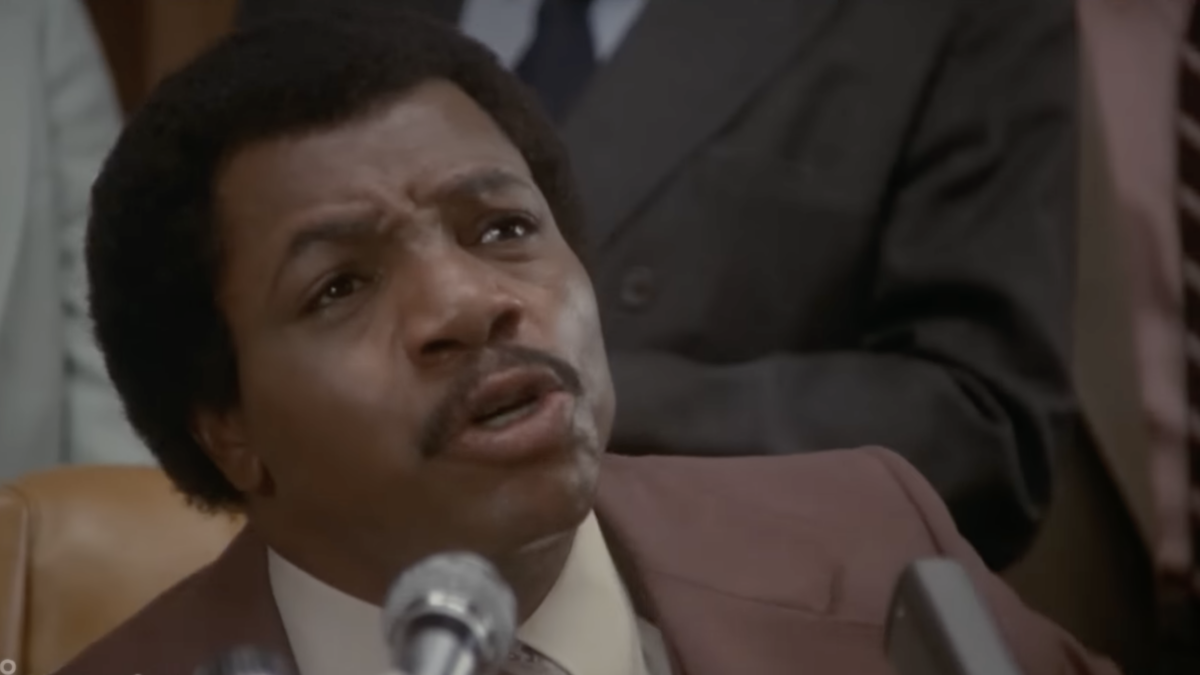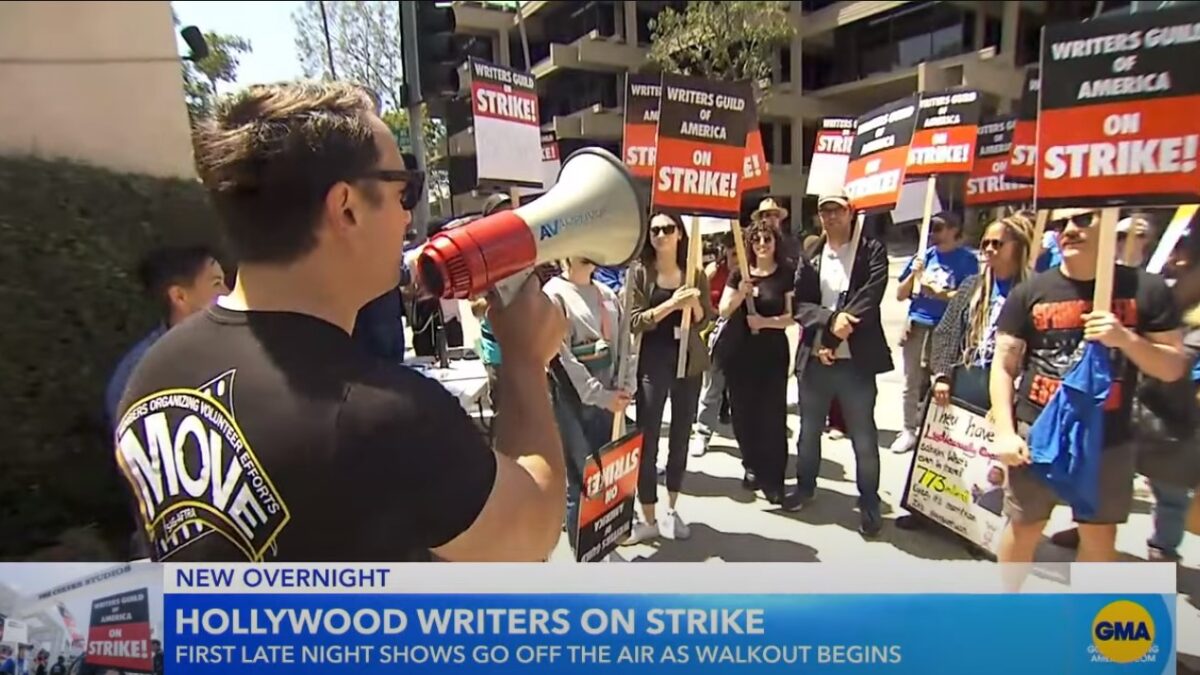
This month’s New York magazine profile of late-night TV host Jimmy Kimmel focuses on his forays into political commentary and fawningly (and ironically) compares him to Walter Cronkite speaking out against the Vietnam War. A close reading suggests Kimmel is less of a progressive truth-teller than remarkably shrewd about not only the role politics has come to play on his program, but also the potential impact the Harvey Weinstein scandal may have on his career.
When Kimmel is asked whether he has alienated people on the Right, he responds: “I think I’ve alienated more people than I’ve brought onboard. But what I thought was important was telling the truth.” Yet when the interviewer later reminds Kimmel that his ratings are up, he is forced to agree, but adds: “Eighty percent of late-night-television success is how well your network is doing at ten o’clock.”
There is an element of truth here, but as Kimmel himself acknowledges elsewhere in the interview, controversy also can drive an audience: “there’s absolutely nothing better for ratings than a sh-tstorm.” He said this in discussing “The Man Show,” which Kimmel co-created and co-hosted at the turn of the century. The comic is carefully and subtly rewriting this chapter in his career.
No More ‘Man Show’
For those unfamiliar with it, “The Man Show” was inspired by a producer’s comment that Kimmel would never appeal to women. Kimmel decided he would create a show appealing to men. The resulting program’s signature segment featured women bouncing on trampolines. As “The Man Show” broke for commercials, viewers were treated to performances by the Juggy Dance Squad, a group of buxom women shimmying in skimpy outfits.
During the run-up to the launch of “Jimmy Kimmel Live!,” the comedian was willing to tell The New York Times magazine: “That is definitely one element of my persona. If I’m out drinking with my buddies, that’s when it comes out. But I’ll be totally different at other times, depending on the situation. ‘The Man Show’– I knew what that was. I gave them what they wanted.’’
One cannot know whether his persona retains that element. In any event, while Kimmel insists to New York magazine that a reboot of “The Man Show” would do well, he must realize it would never be greenlit in the current post-Weinsteingate environment.
Accordingly, Kimmel is careful now to highlight and frame the program as quasi-satirical: “We always said The Man Show’s audience was divided between people who thought it was funny and understood we were joking and other people who really thought we had some kind of an agenda.” But where is the line between winking satire and kidding on the square?
The interviewer, to his credit, pressed Kimmel on this point, asking whether he cringed at “The Man Show.” Kimmel evaded: “I look back at every show I’ve ever done and cringe. My vision of hell is a bunch of monitors with my old shows running on them. But yes, of course, and not necessarily for the reasons you think. I just think, Oh, we could’ve done that better. It was a show people loved, and I got to work with Adam [Carolla], which was a dream at the time, and we did a lot of funny stuff. We also did a lot of stupid stuff.”
But People Like Objectification
“Stupid” is pretty mild self-criticism, especially in the field of comedy. Indeed, at another point, Kimmel suggests having co-created and co-hosted “The Man Show” gives him credibility to pitch progressive commentary to the less enlightened. This despite his later admission he doubts he could ever win back former viewers on the Right.
Kimmel was similarly defensive and evasive when asked how he has addressed Weinsteingate and might tackle it in the future. For example, when asked about the criticism that he initially avoided commenting on the scandal, Kimmel replied that the story did not break until shortly before show time on a Thursday and that his Friday program was a rerun. In reality, late-night shows have skewered President Trump based on late-breaking news—and Kimmel supposedly does not tape his show in the afternoon, as his competitors do.
When asked whether Weinsteingate will change things in Hollywood, Kimmel responded: “I hope so. I definitely think it will make the guys who do this kind of thing think twice. But it’s silly to point at Hollywood specifically. Hollywood’s not so different than any other business.”
While sexual harassment is a general societal problem, most other businesses do not rely significantly on the sexual objectification of attractive people. You know, like “The Man Show.”
Jimmy Kimmel’s Big ‘Man Show’ Problem
The interviewer then suggested Hollywood is also different because it is seen as a progressive industry, raising the charge of hypocrisy on workplace misogyny. Kimmel replied: “I don’t know. I mean, I remember hearing one story about Harvey, but it seemed designed to tarnish an actress. It was about some actress trading a sexual favor to get into a movie, and I always just assumed that it was probably untrue, and it was none of my business either way.”
This answer takes a page from George Clooney’s playbook and is clever both as text and subtext. As text, Kimmel signaled that his dismissal of this apparently open secret was due to his respect for the actress involved. As subtext, he reinforced for the reader the notion that there may be sexual predators in show business, but there are also actresses offering sex for career advancement, so why would he be concerned?
Lastly, when asked whether he might joke about Weinstein when hosting the Oscars in 2018, Kimmel initially said he probably would, but then seemed to reconsider in the moment: “It’s not really a laughing matter. There’ll be a lot of people in that room who maybe have been through experiences with him, and that’s not something I want them to relive on the night they get their Oscar.”
That’s not an unfair concern. However, as with his dismissal of the Weinstein rumor, it seems as though Kimmel always has a reason to not discuss the issue, except under the glare of public criticism for remaining silent.
Of course, Kimmel’s reason for avoiding the subject of sexism in Hollywood is even more of an open secret than Weinstein’s alleged assaults and harassment. He co-hosted “The Man Show” from 1994 until 2003. He may claim that the election of Donald Trump made him woke, but he obviously recognizes that taking the lead on the debate over showbiz misogyny would subject him to precisely the charge of hypocrisy the interviewer raised.
Jimmy Kimmel is no fool; he just plays one on TV.









